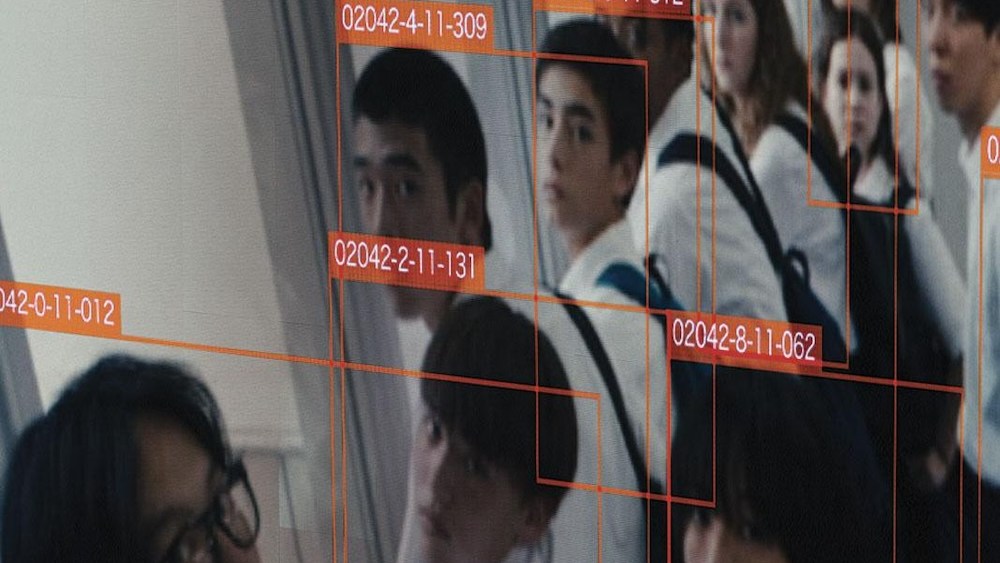Japanese director Shinku is not any catastrophist: the dystopian imaginative and prescient he lays out in his coolly compelling first fiction function Joyful Endings is chilling as a result of it doesn’t require a thundering apocalypse to do it. accomplish. As an alternative, set within the close to future, only a stone’s throw from the current, haunted by lots of our present predicaments, and a way of an impending however not imminent apocalypse, his teenage heroes develop up like youngsters. It is simply that right here, it is much more poignant to expertise the tip of the start of life when it’d simply be the start of the tip of the world.
In tomorrow’s Tokyo, a skyline of concrete curves and high-rise buildings has a barely metamorphic air (maybe as a result of the movie was shot largely in Kobe), a highschool principal (Shiro Sano) is distressed to find his beloved sports activities automotive It was set in a single day. The scholars gape in amazement—put Banksy’s identify on it, you might name it artwork—however the teenage mischief is revealed to us in DP Invoice Kerstein’s elegant, composed monitoring pictures. , was shortly declared an act of “terrorism” and have become an excuse to put in a heavy-handed surveillance system.
Due to this fact, your entire pupil physique can be punished for the actions of some. As for who these individuals may be, individuals instantly started to suspect – and never with out good purpose – that they had been a gaggle of affable, noisy final-year youngsters, led by Kou (Yukito Hinaki) and Yuta (Shunao Kurihara). Finest associates since childhood. Along with Tomu (Arazi), Ming (Shina Peng) and Ata-chan (Yuta Hayashi), they kind a tight-knit workforce who share a love of underground music and revel within the relative freedom afforded by the college’s well-equipped music room. That is their authorized territory and base of operations.
The son of the late Ryuichi Sakamoto (and director of the critically acclaimed documentary Ryuichi Sakamoto: The Works), Sora displayed a refined fervent devotion to music that was maybe the final word expression of nascent individuality, and thus perpetually It’s the risk to the regime that depends on compliance and obedience. Early on, Kou and Yuta break right into a tech membership (utilizing the tried-and-true sneaky analog technique) and are raided by the police. Then, amid the chaos, their adoring DJ shoved the remainder of his songs onto a thumb drive, as if he’d entrusted them with the duty of conserving the thumping rhythms of youth tradition’s resistance alive.
The venture doesn’t maintain a lot curiosity within the gratuitous insurgent Yuta, as beneath the ebb and circulation of Lia Ouyang Rusli’s masterful rating – large electronica one second, the softest piano the following, by no means overbearingly deployed – Sora Steadily narrowing the scope he targeted his all-seeing eye on the connection between himself and the extra considerate Kou. Mr. Ko, the son of undocumented Korean immigrants, has rather more to lose if he falls foul of the authorities than his doting finest pal, however it’s not simply the distinction of their social standing that begins to divide them. Kou additionally has a crush on Fumi (Inori Kiara), a quiet, studious woman his age (“You learn paper books?” he asks her in disbelief) who hangs out with a militant group , a gaggle that is aware of methods to flip younger individuals’s discontent into actual political affect. Kou participates and enjoys his awakening, whereas Yuta, the extra clearly rebellious baby, in the end proves to be the extra timid. Everyone seems to be altering, however Yuta secretly longs for issues to remain the identical.
That is the close to future, so there isn’t a want to elucidate hitherto uninvented applied sciences or unfamiliar languages and customs. As an alternative, Sola’s concise script paints a world that appears so much like ours, however with the screws tightened just a bit bit. Cellphones are in every single place however used as monitoring units; your face is sort of a fingerprint, with all of your particulars popping up on a contact display as soon as snapped by a passing police officer. However he additionally offsets the doom and gloom of technocratic paranoia by pointedly declaring the bracing irony that the methods utilized by authoritarian regimes to suppress the vitality of youth will at all times be higher understood by youthful individuals than by their older oppressors. Regardless of who the safety guard is, minors will at all times discover a again door to sneak in. This underlying perception that the children can be okay, together with a candy, easy disappointment for the individuals we lose on the best way to turning into the individuals we develop into, means “Happyend” has a sure innocence to it. However when you think about the advantages that every one this complexity brings to us, possibly innocence is precisely what we’d like.

